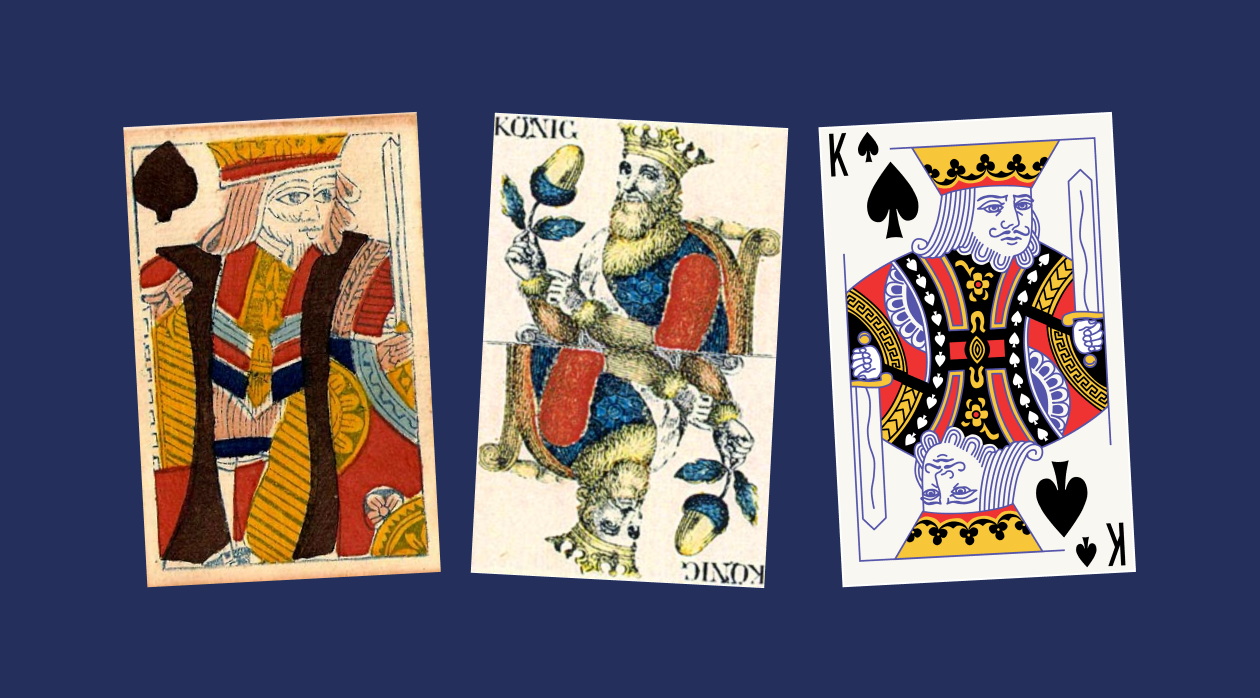The History and Evolution of Solitaire Games
How Solitaire Has Evolved Throughout The Ages

Solitaire has undergone several iterations and versions before reaching our point today. While today, we only really see it as an intellectually stimulating pastime, its roots lie in far more mystical origins.
Of course, learning how to play Solitaire is a fun exercise, but taking a quick dive into its rich history can be equally enjoyable. So, why don’t we journey through the ages and see how this age-old game has evolved?
The Origins of Solitaire
Solitaire first emerged in the 17th-18th century in Northern Europe, where the earliest card game instances appeared in Scandinavia or Germany. The first concrete references to Solitaire come from the late 18th century in Northern Europe. The earliest collection of Solitaire games in print was recorded in a German game anthology in 1783. Back then, it wasn’t a card game. Instead, it was a form of fortune telling, where clairvoyants would use a deck of cards – similar to the 52-card standard we use today – to say to people's fortunes.
Over time, this trend seeped into France and other neighboring countries. By the early 19th century, Solitaire games were increasingly mentioned in French and English literature, indicating their growing popularity across Europe. However, it only picked up a reputation as a form of entertainment after the 19th Century.
The Evolution of Solitaire Variants
Once Solitaire had evolved from a form of fortune-telling to one of entertainment, new Solitaire variants began popping up across the globe, especially in the Americas and Canada. The origins of the most popular version, Klondike, are believed to emerge from the Klondike Gold Rush in Canada.
While Klondike remains the most prevalent variation, other variants – such as FreeCell and Spider, are still quite popular and played on various occasions today. These variants became popular during the digital age, where the advent of Microsoft Windows propelled Solitaire into the digital market and helped it get recognized globally.
You can find a lot of similarities between these variants, and you’ll notice that when you jump from game to game at theSolitaire.com, many of the skills you learn are transferable.
- Feature
- FreeCell Klondike Spider
- Origin
- Believed to have been invented in the 1940s Originated in the late 19th century during the Klondike Gold Rush Early 20th century origins
- Decks
- One deck One deck Two decks
- Layout
- Tableau of 8 columns, four free cells, four foundation piles Tableau of 7 columns with increasing cards, four foundation piles Tableau of 10 columns, no separate foundation piles initially
- Goal
- Build up the foundation piles by suit from Ace to King Build up the foundation piles by suit from Ace to King Remove all cards by creating descending sequences in the same suit
- Strategy
- Highly strategic, requires planning several moves ahead A bit of luck involved along with strategy It is more complex and requires careful planning and adjustment
- Difficulty
- Moderate-High Moderate High
Solitaire in the Digital Age
Most of us remember the boom that happened alongside the release of Microsoft Windows. The ‘dot-com’ bubble,’ as most people call it, was one of the most significant boosts to the popularity of Solitaire, as it was an essential part of all Microsoft Windows platforms, where users could play the game freely.

Oddly enough, the game wasn’t exactly meant for entertainment purposes. Instead, it was designed to familiarize users with the nuances of a software GUI or Graphical User Interface. However, as things happened, digital Solitaire quickly became an activity kids in the 90s would use to pass the time – fittingly so, it’s an entertaining game.
The Role of Solitaire Today
The fact that Solitaire has retained such a profound presence throughout the years is a statement in itself. However, when you think about it, it’s pretty intuitive how the game persevered for so long. The plethora of benefits it offers – especially regarding cognitive reinforcement and improvement for kids and elders alike – is quite prominent. I’ve listed some mental benefits of Solitaire below to give you an insight into how helpful this handy card game can be:
-
Mental Agility Solitaire requires players to make decisions – often quick ones if you plan on challenging yourself on time. You also need to plan moves and adjust strategies, all of which are excellent exercises for the brain.
-
Memory Improvement Solitaire requires players to make decisions – often quick ones if you plan on challenging yourself on time. You also need to plan moves and adjust strategies, all of which are excellent exercises for the brain.
-
Problem-Solving Skills Solitaire challenges players to solve the puzzle of each new deal, fostering critical thinking and problem-solving abilities.
-
Data-proven Benefits Several studies have demonstrated that playing strategic card games like Solitaire can increase brain volume and prevent the onset of cognitive ailments such as dementia and Alzheimer's.
Solitaire has served many roles throughout history, and its importance extends beyond simple entertainment. Now, when you play your next game on theSolitaire.com, you’ll know the rich origins of the game held across time.